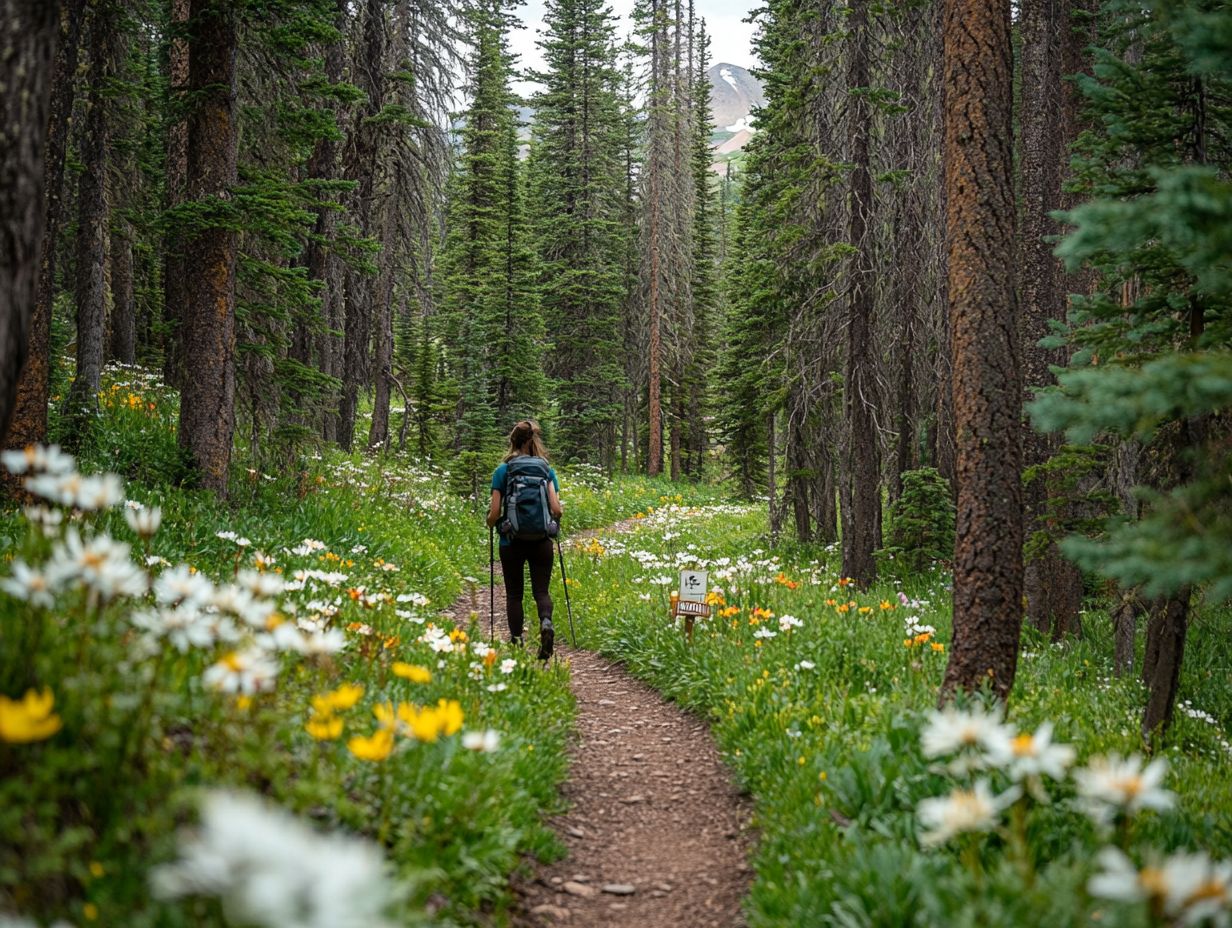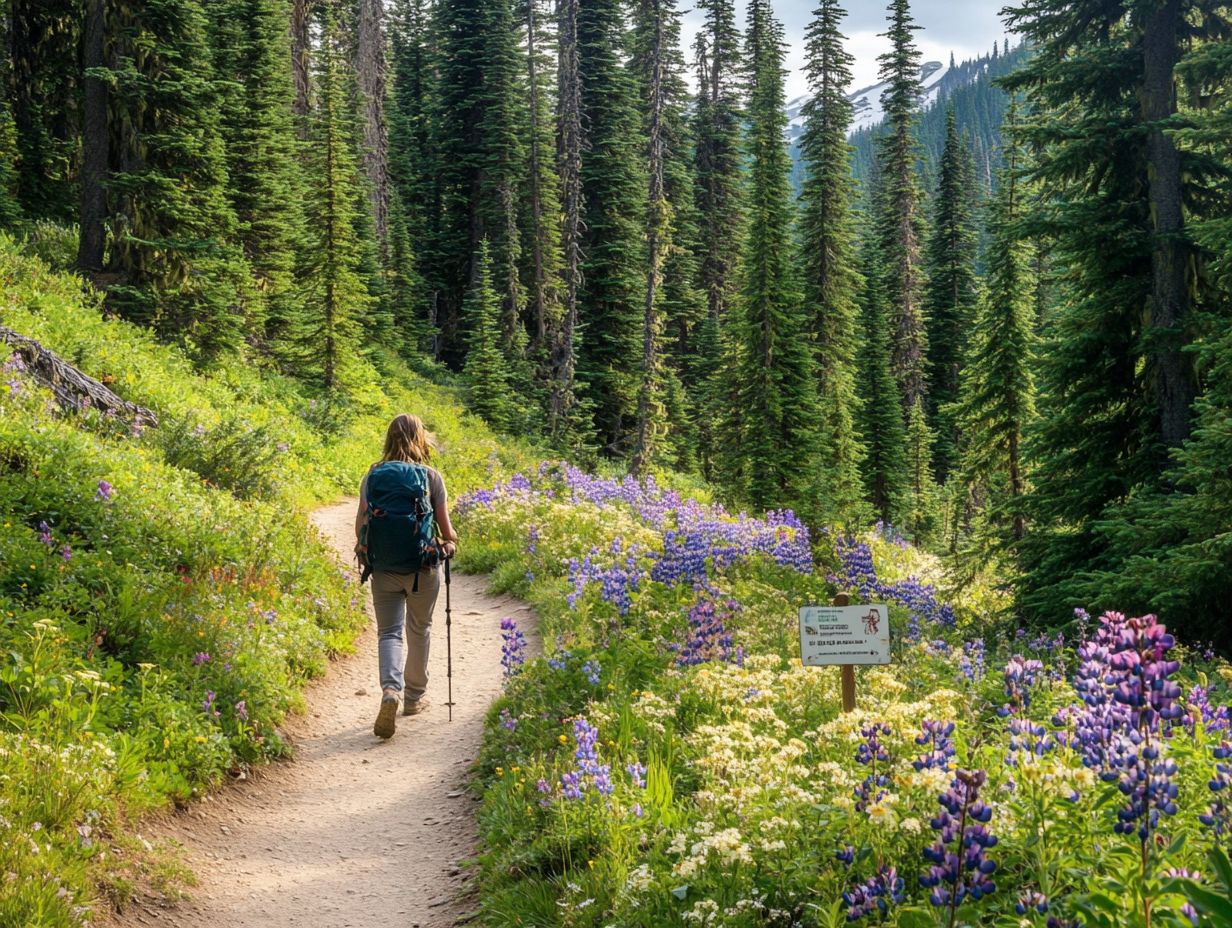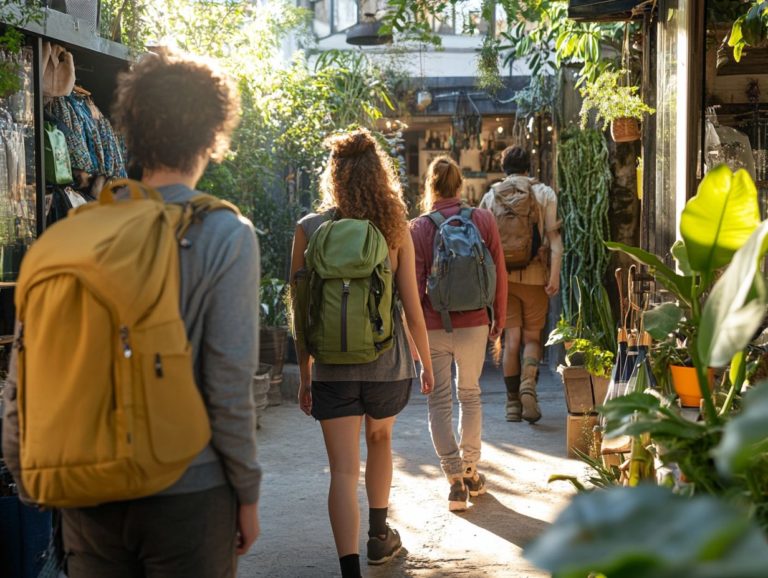Exploring Nature Responsibly: A Traveler’s Guide
Traveling presents a remarkable opportunity to explore the world. However, it s crucial to approach it with care and respect for the places you visit.
Engaging in responsible travel enriches your experiences and leaves a lasting impact on local communities and the environment. This guide equips you with practical tips for practicing responsible travel: selecting environmentally friendly accommodations, participating in sustainable activities, minimizing your environmental footprint, and honoring local cultures.
Dive in to uncover how you can make a positive difference while satisfying your wanderlust through educational experiences and cultural exchange!
Contents
- Key Takeaways:
- Why Responsible Travel is Important
- Practicing Responsible Travel
- Choosing Responsible Accommodations
- Responsible Activities and Tours
- Minimizing Environmental Impact
- Respecting Local Cultures
- Frequently Asked Questions
- What is the importance of exploring nature responsibly and how does it relate to tourism?
- What are some tips for responsible nature exploration and eco-friendly travel?
- Are there any regulations or guidelines for exploring nature responsibly in eco-conscious destinations?
- What should I do if I encounter a wild animal while exploring nature and practicing responsible tourism?
- How can I minimize my impact on the environment while exploring nature and travel responsibly?
- Are there any benefits to exploring nature responsibly and promoting environmental education?
Key Takeaways:

- Responsible travel positively impacts local communities and environments.
- It involves following tips and guidelines, choosing eco-conscious accommodations, and supporting local businesses and conservation efforts.
- Minimizing environmental impact and respecting local cultures are crucial for exploring nature responsibly.
Why Responsible Travel is Important
Responsible travel is essential in today s world. It fosters a meaningful connection between you and local communities while minimizing the environmental impact of tourism.
By embracing environmentally friendly habits, you actively contribute to the preservation of cultural heritage and biodiversity. This ensures the longevity of the destinations you hold dear.
As the tourism landscape evolves, recognizing the significance of responsible tourism becomes increasingly critical. This awareness helps you enjoy enriching travel experiences while safeguarding our planet for generations to come.
Impact on Local Communities and Environments
The impact of responsible travel on local communities and environments is profound. It cultivates economic benefits while championing the preservation of natural resources and cultural identity.
This approach allows you to engage meaningfully with local traditions. Residents become active stewards of their own heritage through community-based tourism.
Imagine Costa Rica, where incredible ecotourism initiatives thrive! Here, cooperative ecotourism initiatives enable families to offer guided nature tours, such as wildlife watching and nature walks, generating income while fostering a deeper awareness of environmental conservation.
Such practices illustrate a harmonious balance where communities flourish economically while ensuring their ecosystems are safeguarded for future generations.
Practicing Responsible Travel
Practicing responsible travel means embracing environmentally friendly habits. These not only enrich your travel experience but also lessen adverse effects on the environment and local cultures.
By opting for sustainable food choices, participating in farming tours, and collaborating with eco-tour operators, you can make informed decisions that positively impact the destinations you explore.
Tips and Guidelines for Responsible Travel
Adopting responsible travel practices means committing to minimizing your footprint. Respect local customs and make thoughtful choices about your travel experiences.
Consider your impact on the environment by engaging in eco-friendly habits. This may include reducing plastic use, opting for public transportation, and selecting accommodations that prioritize sustainability.
Staying informed about local traditions is essential. Participating in community-led tours and supporting local artisans deepens your understanding of the culture and bolsters economic development.
Consciously choose activities that protect wildlife by selecting ethical tours that respect natural habitats. By integrating these guidelines into your travels, your journey transforms into a meaningful contribution to the destinations you visit.
Choosing Responsible Accommodations

Selecting responsible accommodations is vital for eco-conscious travelers. It significantly affects the environmental impact of your stay while supporting sustainable tourism practices.
By opting for eco-friendly choices, you contribute to local economies and champion responsible tourism initiatives.
Eco-friendly and Sustainable Options
Eco-friendly and sustainable accommodations are becoming a top choice for travelers prioritizing environmental conservation. They aim to minimize greenhouse gases that contribute to climate change while enjoying their stay.
With growing awareness of environmental issues, many establishments now offer greener alternatives. Consider eco-conscious hotels that harness renewable energy sources like solar and wind power. These hotels are committed to effective waste reduction practices, eliminating single-use plastics and ensuring organic waste is composted.
Look for certifications like LEED (Leadership in Energy and Environmental Design) and Green Key; these labels indicate a lodging s dedication to sustainability and help you make informed choices. Some accommodations even incorporate local materials in their construction and sourcing, reducing their ecological footprint while supporting the community.
Responsible Activities and Tours
Engaging in responsible activities and tours enriches your travel experiences. You also support local economies and conservation efforts.
This approach benefits you and the local communities you visit.
Supporting Local Businesses and Conservation Efforts
Supporting local businesses enhances your travel experience. It bolsters conservation efforts and ethical tourism practices, creating a positive economic impact on communities.
When you choose to dine at family-owned restaurants or shop at local markets, you can play an exciting role in preserving unique cultural identities and traditions. These establishments often embody the rich history and customs of the area, offering an immersive experience that chain businesses cannot replicate.
Engaging in ethical tourism encourages sustainable practices that benefit both the environment and local economies. This fosters a sense of accountability among you and the residents alike. Together, these efforts enrich communities and inspire a more mindful approach to exploring new places.
Minimizing Environmental Impact
Minimizing your environmental impact while traveling requires a commitment to eco-conscious practices. By prioritizing the reduction of waste and carbon emissions, you enhance your travel experience and champion the cause of sustainable travel.
Reducing Waste and Carbon Footprint

Reducing waste and your carbon footprint is essential for eco-conscious travelers like you. This helps lessen your environmental impact while discovering new destinations.
By embracing this responsibility, you can enhance your travel experiences while actively promoting global sustainability. One effective strategy is to utilize reusable products, such as water bottles and shopping bags. These significantly cut down on single-use plastic consumption.
Opting for eco-friendly transportation methods, like biking, walking, or using public transit, reduces carbon emissions. It also enables you to engage more authentically with local cultures.
Prioritizing sustainable food options like supporting local farms and choosing plant-based meals contributes to a lower environmental footprint. Collectively, these practices enable you to travel mindfully and leave a positive legacy for future generations.
Respecting Local Cultures
Respecting local cultures is essential for travelers aiming to engage in meaningful cultural exchanges and practice ethical tourism. By honoring the customs and traditions of the communities you visit, you ensure that your presence enriches both your experience and the lives of those you encounter.
Understanding and Adhering to Cultural Norms
Understanding and adhering to cultural norms allows you to engage authentically with local customs. This builds respect and enriches your travel experiences while enhancing your appreciation for wildlife.
This engagement opens doors to deeper interactions with local communities. You can appreciate the intrinsic values and traditions that shape various cultures around the world.
By immersing yourself in these unique societal practices, you create lasting impressions not just for yourself, but for your hosts, who are genuinely delighted by your authentic interest.
Respectful travel lays the groundwork for meaningful connections. It transforms ordinary trips into transformative journeys that enhance your overall adventure.
This cultural awareness can help you avoid misunderstandings. It also builds a genuine rapport with the environment and its people.
Frequently Asked Questions
What is the importance of exploring nature responsibly and how does it relate to tourism?
Exploring nature responsibly helps preserve the environment for future generations and ensures the sustainability of natural resources. It also contributes to eco-tourism.
What are some tips for responsible nature exploration and eco-friendly travel?

Some tips include sticking to marked trails, not disturbing wildlife during viewing, properly disposing of waste, and avoiding activities that can harm the environment. These actions promote conservation efforts.
Are there any regulations or guidelines for exploring nature responsibly in eco-conscious destinations?
Yes, many national and local parks have specific regulations and guidelines for visitors. These are designed to protect the environment and maintain safety for both humans and wildlife, emphasizing responsible tourism.
What should I do if I encounter a wild animal while exploring nature and practicing responsible tourism?
If you encounter a wild animal while hiking or walking in nature, keep a safe distance. Avoid feeding or approaching them. If the animal seems threatening, calmly back away and leave the area.
How can I minimize my impact on the environment while exploring nature and travel responsibly?
You can minimize your impact by using eco-friendly products, engaging in sustainable practices, packing out all trash, and avoiding activities that can damage plants and wildlife. This supports nature conservation.
Are there any benefits to exploring nature responsibly and promoting environmental education?
Exploring nature responsibly can lead to a deeper connection with and appreciation for the environment. It promotes physical and mental well-being through outdoor activity while providing educational experiences that raise climate change awareness.
What are your thoughts on responsible travel? Share your experiences or tips below!






